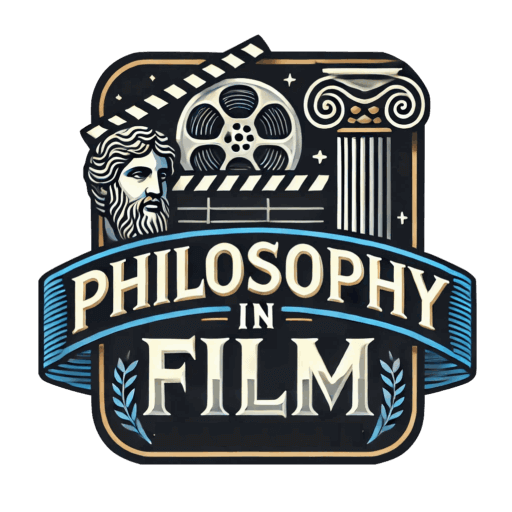10 Metaphysical Films for Philosophy Students
When I took my first Intro to Philosophy course, I remember thinking that metaphysics was too dense for me; it was hard to even wrap my head around the subject matter. When you start to look at the texts and theories within the field, it can all be a bit overwhelming and difficult to define. So, constitutes the study of metaphysics?
In essence, metaphysics is the foundation, or “first principle,” of all other branches of philosophy. Metaphysics deals with substance, being, identity, the human mind, time, space, and even ethics. Since the word itself encompasses such a wide range of topics, it’s difficult to apply the term “metaphysical” to anything outside of arguments that directly engage with metaphysics as a field of study.
Nonetheless, there are metaphysical films, books, short stories, and essays, among other things, and we recognize them for their distinctly metaphysical characteristics. But what are these characteristics? And how can we define and identify a metaphysical film?
What is a Metaphysical Film?
In order to define the term “metaphysical film” or “metaphysical movie,” we must first determine what is meant by “metaphysics.” In his 1981 essay, What is Metaphysics?, George N. Schlesinger provides this broad definition:
“Metaphysical problems, are problems about how the world is, but which scientists do not tackle, leaving them to philosophers to investigate.”
Alternatively, Keith Campbell defines metaphysics as follows:
“Metaphysics is concerned with the overall framework of reality…Metaphysical inquiry is distinguished from science…only by attempting a more comprehensive and more systematic theory.”
From these definitions, we might extract a few important pieces of information. First, metaphysics is not a field of scientific inquiry, like biology or physics, but lies within the same realm. Just as a scientist might conduct an experiment to understand the nature of substance, a student of metaphysics might do the same, although they would go about it in very different ways (namely asking different questions).
Like most schools of philosophy, metaphysics asks fundamental questions about a given subject; in this case, reality itself. Aristotle called metaphysics the “First Philosophy,” as it addresses the abstract, but nonetheless fundamental elements of existence. Aristotle developed his own metaphysical theories, which stood in stark contrast to Plato’s original Theory of Forms.
Throughout the ages, philosophers like Plato, Aristotle, Immanuel Kant, René Descartes, Baruch Spinoza, Friedrich Nietzsche, and Bertrand Russell all developed their own theories about the nature of reality. However, we are not currently concerned with specific theories within the field of metaphysics, but rather the field of study as a whole. More importantly, we aim to understand how the term “metaphysical” might be applied to a work of art.
So, what is a metaphysical film? Just as metaphysics is difficult to define, so too are metaphysical movies. Nonetheless, there are certain criteria that a metaphysical film must meet in order to qualify. To be considered a metaphysical work, a film must possess all of the following characteristics:
- A metaphysical film addresses questions related to the field of metaphysics in its narrative, either directly or indirectly.
- A metaphysical film uses the unique elements of the filmmaking process (cinematography, editing, special effects, etc.) to direct attention to the question of “reality.”
- A metaphysical film uses visual effects to transcend reality in a way that implicitly asks (or attempts to answer) metaphysical questions.
Meta Film vs. Metaphysical Film
As it is popular to apply the term “meta” to different works of art (particularly films), it is important to note the distinction between “meta films” and “metaphysical films.” “Meta” simply refers to any work of art that is self-referential or somehow comments on the conventions of its genre or format. Needless to say, these two categories are very different, but they are not mutually exclusive. In fact, many metaphysical movies could also be called “meta,” as they utilize methods that draw the viewer’s attention away from the narrative and toward the nature of filmmaking itself.
10 Metaphysical Films for Philosophy Students
Now that we have a better understanding of metaphysical films and how they might be delineated from other types of philosophical films, we might begin to identify individual films that meet the necessary requirements. This is by no means a comprehensive list, but every film listed meets the standards outlined above. In any case, let’s take a closer look at 10 metaphysical films for philosophy students:
10. Ghost in the Shell (Mamoru Oshii, 1995)

Though the Ghost in the Shell franchise spawned many adaptations, including the technically-impressive but somewhat shallow American version, the original 1995 film remains a classic to this day. The story follows Motoko Kusanagi, an elite public security officer, whose body has been augmented with “cybernetic” upgrades. The film explores a number of intriguing themes related to identity, technology, and human nature.
Metaphysical Questions: As technology advances, at what point do human beings cease to be humans, and start to exist as something else entirely?
Ghost in the Shell (1995) is available to stream via Amazon here.
9. The Fountain (Darren Aronofsky, 2006)

The Fountain explores themes of lost love, time, space, and mortality through three interwoven storylines. We observe a conquistador and his queen, a doctor and his dying wife, and a futuristic traveler exploring space with elements of his lost loves. Visually, The Fountain transcends the normal boundaries of time and space, while also questioning the purpose of human existence in the face of death.
Metaphysical Questions: What is time? Do death and the passage of time negate any inherent meaning in life?
The Fountain (2006) is available to rent, purchase, or stream via Amazon here.
8. The Skin I Live In (Pedro Almodóvar, 2011)

While celebrated Spanish director Pedro Almodóvar isn’t usually associated with metaphysics, his 2011 psychological thriller, The Skin I Live In, serves as an interesting and horrific look at human identity. In the film, the wife of a brilliant surgeon, Dr. Robert Ledgard burns to death in a tragic car accident, prompting the doctor to develop a more creative form of skin. Dr. Ledgard kidnaps someone to test his creation, effectively creating a new person. His prisoner, Vera, struggles to cope with her new skin, appearance, and sense of self.
Metaphysical Questions: What is a human being? What does it mean to be a singular person?
The Skin I Live In (2011) is available to rent or purchase via Amazon here.
7. The Tree of Life (Terrence Malick, 2011)

The Tree of Life is a sweeping epic that attempts to focus on the entirety of existence, from the beginnings of the universe to the current day. While the narrative uses haunting, hallucinogenic imagery, it also focuses on the day-to-day life of Jack, whom we see grow from boyhood to manhood, observing the world around him and trying to find meaning in his existence. The Tree of Life is also notable for its absurdist themes, as it juxtaposes the relative insignificance of a human life compared to the vast chaos of the universe.
Metaphysical Questions: How are substance, memory, and consciousness connected?
The Tree of Life (2011) is available to rent, purchase, or stream via Amazon here.
6. Stalker (Andrei Tarkovsky, 1979)

Much of Tarkovsky’s work explores existential and metaphysical themes, but Stalker is easily one of his best metaphysical films and a treasure of Societ Cinema. In Stalker, a man guides others through “The Zone,” a wasteland in which the usual laws of physics and reality do not exist. The guide and his two companions hope to discover “The Room,” a place rumored to grant wishes to anyone who steps inside.
Metaphysical Questions: What is the structure of space? Does anything exist beyond what humans can sense?
Stalker (1979) is available to rent or purchase via Amazon here.
5. The Science of Sleep (Michel Gondry, 2006)

In The Science of Sleep, a young man mourns the recent death of his father. Subsequently, he begins having strange dreams, which quickly mesh with his waking life. While this surrealist film focuses on the young man’s often comical romance with his neighbor, it also explores the boundaries (or lack thereof) between dreams and the “reality” of waking life.
Metaphysical Questions: What are dreams? Do our dreams and waking life constitute two distinct realities?
The Science of Sleep (2006) is available to rent or purchase via Amazon here.
4. The Matrix (Lana & Lilly Wachowski, 1999)

The Matrix is one of the most well-known and popular works based on the “experience machine” thought experiment put forward by Robert Nozick in 1974. In the film, a computer programmer is presented with the fact that humanity lives in a simulated reality controlled by machines that harvest the human race for resources. When Neo disconnects from “the Matrix,” thus leaving the simulated reality, he joins a rebellion to fight back against the machines.
Metaphysical Questions: What is reality? How can we know that our perception of reality is the only true reality, and not merely a simulation?
The Matrix (1999) is available to rent or purchase via Amazon here.
3. Advantageous (Jennifer Phang, 2015)

Much like Ghost in the Shell, Advantageous dissects the complex relationship between advanced technology and human nature. Set in the near future,this science fiction film tells the story of a single mother, Gwen, who markets futuristic cosmetic procedures. When she is suddenly fired for being too old, she is left without any support. In a moment of desperation, Gwen approaches her former employer and volunteers to be the first test subject for a new procedure that will transfer her consciousness into a newer, younger body.
Metaphysical Questions: What constitutes a true identity? Can a singular human consciousness be replicated in another body?
Advantageous (2015) is available to rent or purchase via Amazon here.
2. Enter the Void (Gaspar Noé, 2009)

Known for his creative, albeit divisive visual style and his association with the “cinéma du corps,” Gaspar Noé is one of the most challenging and unique directors of the postmodern cinema in France. In Enter the Void, viewers experience a hallucinogenic journey through the eyes of a young man living (and dying) in Tokyo. Following his death, he floats through time and space, observing both the future and the past.
Metaphysical Questions: Does consciousness end with death? Does the death of the body signify the death of a person?
Enter the Void (2009) is available to rent, purchase, or stream via Amazon here.
1. Waking Life (Richard Linklater, 2001)

Waking Life engages with metaphysical questions more directly than any other film on this list. The story follows a young man as he wanders through animated, dream-like sequences, wherein a number of people discuss philosophical issues such as the nature of reality, dreams, consciousness, and existentialism. In addition to the metaphysical discussions, the characters frequently inhabit surreal environments and have experiences that subvert reality, such as levitation and visions of infinity.
Metaphysical Questions: What is reality? Does time exist? If time does exist, does it exist outside of our perception of it?
Waking Life (2001) is available to rent or purchase via Amazon here.
More Metaphysical Movies (Honorable Mentions)
Mr. Nobody (Jaco Van Dormael, 2009)
The Truman Show (Peter Weir, 1998)
Wings of Desire (Wim Wenders, 1987)
Upstream Color (Shane Carruth, 2013)
La Jetée (Chris Marker, 1962)
So there you have it, 10 metaphysical films for philosophy students. Again, this is not a comprehensive list of metaphysical movies, so if you think that there are other films that should have been included, feel free to leave a comment! Additionally, if you’d like to learn about some other great films for philosophy students, check out one of these lists:
10 Existential Films for Philosophy Students
10 Absurdist Films for Philosophy Students
10 Surrealist Films for Philosophy Students
10 Lesser-Known Postmodern Films
Sources


Pingback: Metaphysical Art 101: Mostly All You Need to Know About the Art Movement - Joe Latimer | A Creative Digital Media Artist | Winter Park, FL